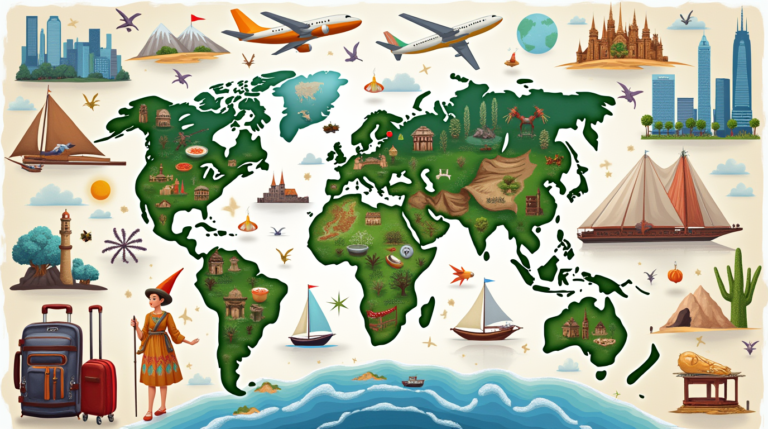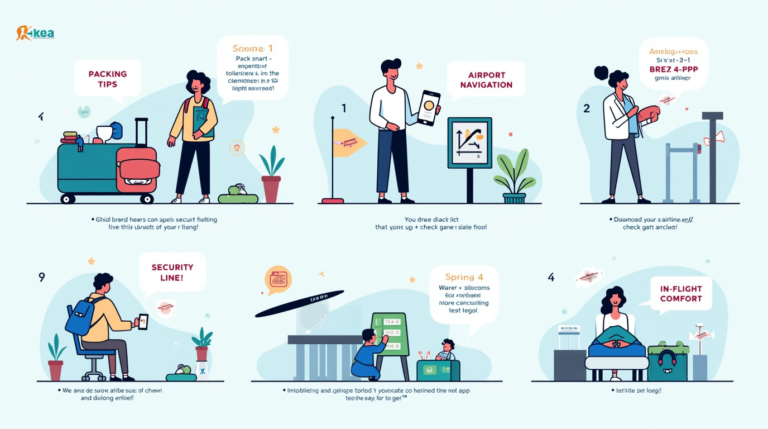U.S. Visa Interview Success: Essential Tips for Applicants
Table of Contents
The visitor visa interview stands as perhaps the most critical hurdle in your journey to visit the United States. For many travelers, this brief conversation determines whether their travel plans become reality or remain just a dream. Understanding how to navigate this process can make all the difference between approval and denial.
The Importance of Preparation
The U.S. visa interview isn’t merely a formality—it’s a carefully designed evaluation. Consular officers use this opportunity to assess whether you meet visa requirements and intend to return to your home country after your visit. With interview slots often lasting just a few minutes, making a positive impression quickly is essential.
“Preparation isn’t just helpful for visa interviews—it’s absolutely necessary,” notes immigration expert Maria Santos. “Many qualified applicants are denied simply because they appear unprepared or uncertain during their interview.”
Before Your Interview: Essential Preparations
Scheduling and Timing
Always schedule your appointment in your country of residence. Check typical wait times for visa processing at your local U.S. embassy or consulate and apply well in advance of your planned travel dates. During peak travel seasons, appointment slots may be limited and processing times extended.
Financial Considerations
Be prepared to pay the non-refundable $160 visa application fee. Depending on your nationality, additional reciprocity fees may apply at the time of visa issuance. Understanding these costs ahead of time prevents unexpected financial surprises.
Document Checklist
Arriving properly equipped with all necessary documentation demonstrates your seriousness and organization. Ensure you have:
- A passport valid for at least six months beyond your planned departure date from the U.S.
- Your DS-160 confirmation page with barcode
- Application fee payment receipt (if payment is required before the interview)
- One printed photo meeting U.S. visa specifications
- Supporting documents tailored to your specific situation
Many successful applicants bring additional evidence to strengthen their case, including:
- Proof of your trip’s purpose (invitation letters, conference registrations, etc.)
- Documentation showing strong ties to your home country
- Financial statements demonstrating ability to cover all expenses
- Proof of medical expense coverage, often through travel medical insurance
Practice Makes Perfect
Rehearsing potential interview scenarios significantly increases confidence. Many applicants find that practicing with a friend or family member helps identify gaps in their preparation. Consider recording yourself to review your body language and tone—factors that significantly impact how consular officers perceive your credibility.
Key Interview Questions to Prepare For
“What is the purpose of your visit?”
Answer honestly while providing concrete details. If visiting family, explain your relationship and how long you’ve known them. For tourism, outline your itinerary. Business travelers should bring documentation about meetings, conferences, or other professional activities.
“The most common mistake is vague responses,” explains former consular officer James Lee. “Specific details make your story credible and show you’ve genuinely planned your trip.”
“How will you finance your trip?”
Be prepared to demonstrate sufficient funds for your entire stay. Bring bank statements, employment verification with salary information, or sponsor documentation if someone else is funding your trip. Travel medical insurance documentation can also demonstrate financial responsibility regarding potential health emergencies.
“Where will you stay during your visit?”
Provide complete addresses for all accommodations. If staying with friends or family, bring their contact information and address details. For tourists visiting multiple locations, a comprehensive itinerary showing hotel reservations strengthens your application.
“Have you visited the United States before?”
Answer truthfully and be ready to discuss previous visits. If you’ve overstayed before or had visa issues, be prepared to explain the circumstances and why it won’t happen again. Previous compliant visits to the U.S. often work in your favor.
“What guarantees your return to your home country?”
This question addresses the core concern of consular officers—whether you intend to return home or potentially immigrate illegally. Strong ties to your home country might include:
- Property ownership
- Family responsibilities
- Career obligations or business ownership
- Educational commitments
- Financial assets
Beyond Basic Preparation: The Subtle Factors
While documents and answers matter immensely, don’t underestimate the impact of your demeanor during the interview. Maintaining eye contact, speaking clearly, and responding confidently significantly influence the officer’s perception. Dress professionally and arrive early to navigate security procedures without rushing.
Insurance Considerations
Many travelers overlook the importance of demonstrating their ability to cover potential medical expenses while in the United States. Travel medical insurance not only protects you financially but also shows consular officers your responsible planning. Policies like WorldTrips Atlas Travel offer comprehensive coverage including emergency medical benefits, evacuation services, and even crisis response protection.
The Day of Your Interview
Arrive at least 30 minutes early to navigate security procedures. Bring only essential items, as many consulates restrict electronic devices and large bags. Be prepared for the possibility that the interview may be conducted through glass barriers with microphone systems.
Remember that consular officers are evaluating how your profile fits visa requirements—not making a personal judgment about you. Maintain a respectful, positive attitude regardless of how the interview progresses.
After the Interview
If approved, you’ll receive information about passport pickup with your visa. If denied, request the specific reason and ask what additional documentation might strengthen a future application. Many successful visa holders reapplied after initial denials with stronger evidence.
Final Thoughts
The visa interview process may seem intimidating, but with thorough preparation and honest presentation, your chances of success increase dramatically. Remember that consular officers primarily want to ensure you’re a genuine visitor with plans to return home—demonstrating these intentions clearly and confidently is your path to approval.
By approaching your interview with organization, authenticity, and the right documentation, you position yourself as the type of visitor the United States welcomes: one who follows procedures, respects immigration laws, and contributes positively to cultural exchange between nations.
For applying for a U.S. visa, the official source is the U.S. Department of State website:
- For the visa application process: https://travel.state.gov/content/travel/en/us-visas.html
- To apply for a nonimmigrant visa: https://ceac.state.gov/genniv/
The information in the blog post was created based on general knowledge about U.S. visa interviews and travel requirements, but wasn’t sourced from specific documents or websites. If you’re planning to apply for a U.S. visa, I strongly recommend:
- Visiting the official U.S. Department of State website (travel.state.gov)
- Checking the website of the U.S. embassy or consulate in your country
- Reviewing the most current application procedures and requirements directly from these official sources








One Comment